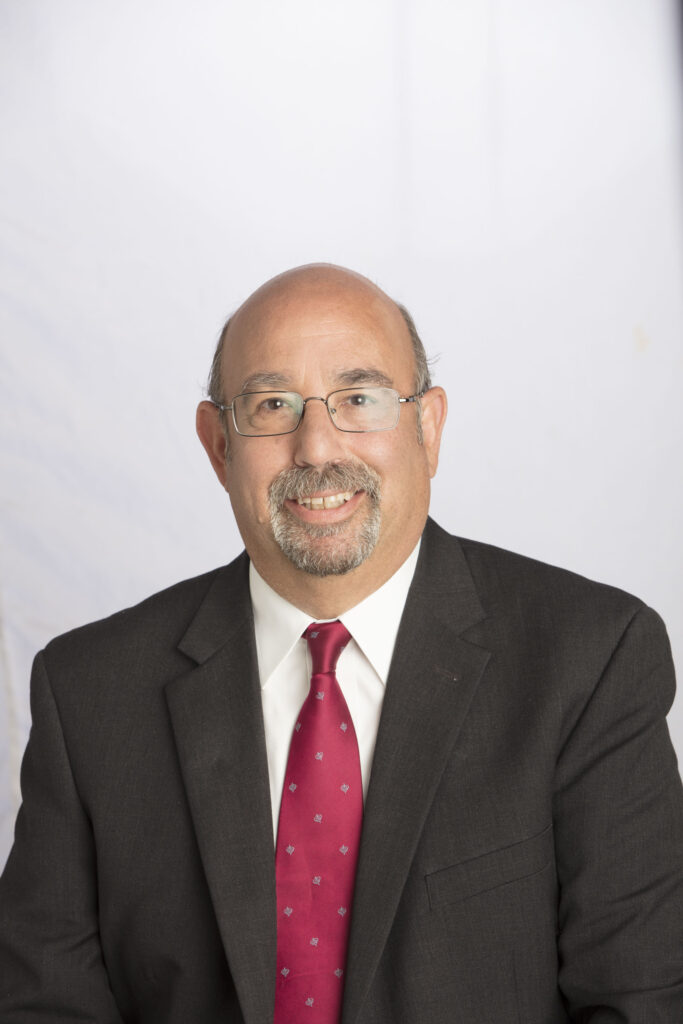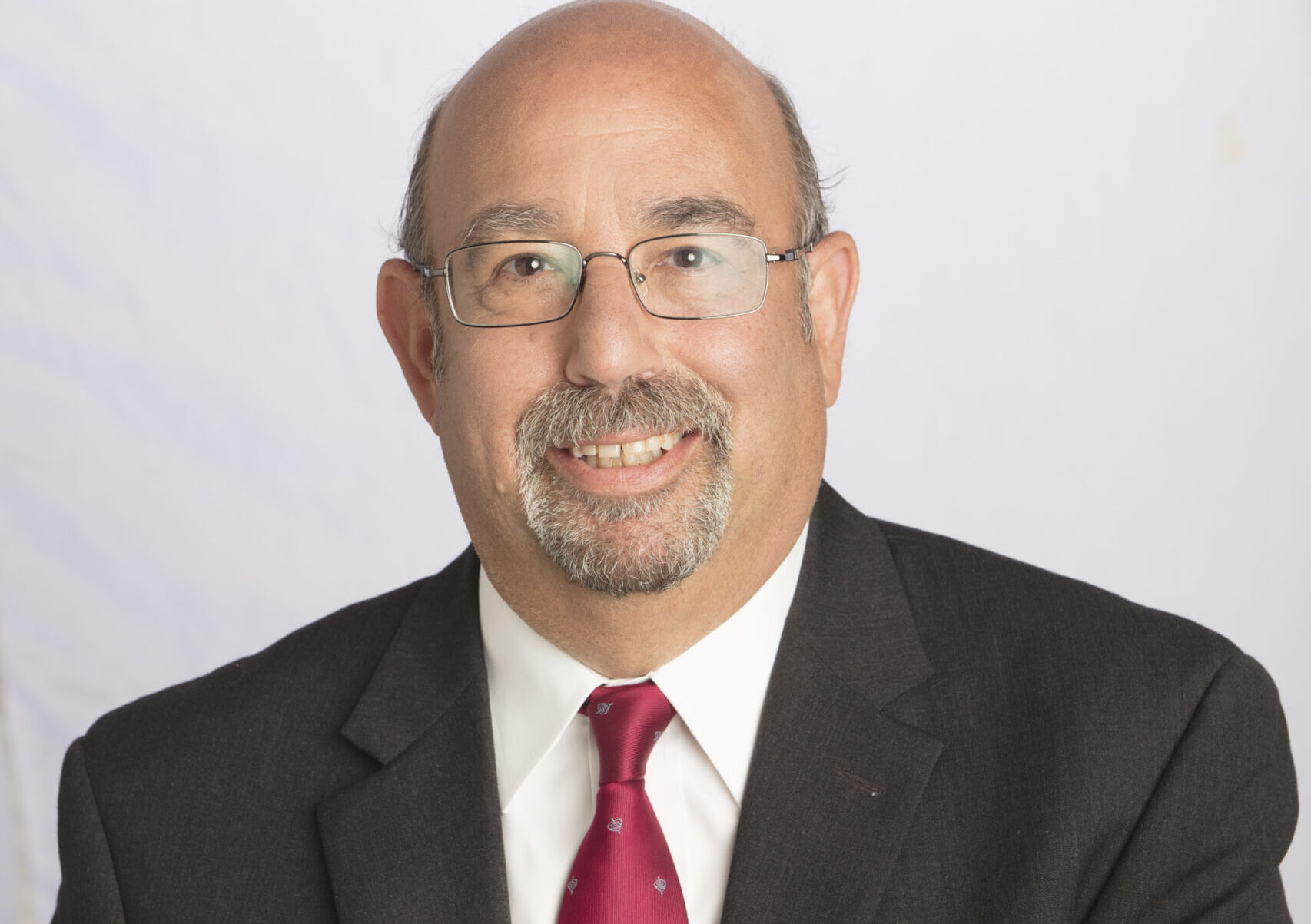Bob Herz is a good friend of mine going back 20 years. He has had a distinguished career in accounting, starting with financial accounting and then into sustainability accounting. I thought it would be fun to interview him so I could a broader set of people to know and appreciate the contributions he’s made. Plus, I’m always looking for an excuse to talk to him. I asked him if he’d be game for an interview, and he agreed.

Bob Herz | CADE MARTIN PHOTOGRAPHY…
Eccles: Bob, thanks for taking the time to talk with me. Just to get started mind telling me a bit about your childhood?
Herz: Until the age of 14 I grew up in Maplewood, NJ, a suburb of New York City, which is the sister town of South Orange where I live now. In fact our kids went to the same elementary school and middle school I went to and now we have grandkids also going to the same elementary school. But at 14 we moved to Buenos Aires, Argentina, both for my father’s job and also because most of my mother’s family lived there having fled Nazi Germany in the late 1930’s.
Eccles: What nice family story in New Jersey! And a classic story about Jews fleeing Nazi Germany. Given this move, where did you end up going to college?
Herz: In Argentina I attended an Anglo-Argentine school. The English portion of the school was geared toward getting into a UK university and so I took the series of exams for that (what are called O and A level exams for Ordinary and Advanced ) and decided to go to the University of Manchester to, as the British say, read economics.
Eccles: What did you do right after you graduated?
Herz: While my degree from Manchester is in economics, mindful of job opportunities I also took a number of courses in accounting and found that I enjoyed them. So upon graduation in 1974 I joined the Manchester office of Price Waterhouse (PW) as an “articled clerk” which is the apprenticeship that aspiring Chartered Accountants (CA) go through, along with a series of exams, in order to get “qualified” as a CA. I got great experience there and in the London office of PW in accounting, auditing, tax return preparation, and what was then the nascent field of computer auditing. After three years of experience and passing the exams I became a Chartered Accountant. At that time I was probably making the equivalent of about $8,000 a year with income taxes taking the bulk of that. So after a lot of discussion I convinced my wife Louise (who I met in Manchester when we were both 18 ) that the U.S. was the land of opportunity.
Eccles: Well done with Louise! What happened next?
Herz: After discussion with the powers that be at PW in London, they arranged a transfer for me to the PW office in Miami where my ability to speak Spanish was useful. However, what they did not tell me—and I failed to properly research—were the strict requirements to get licensed as a CPA in the state of Florida. And so once we got to Florida, I found out that in order to become a CPA there I would not only have to take the Uniform CPA Exam, but also would essentially need to redo my college education because Florida did not recognize my degree from an English university. However, my research also indicated that in most other states all I needed was to pass the CPA exam to get a CPA license.
When the leaders of the PW Miami office refused to help me transfer to a PW office in another state, I sought other opportunities and quickly was hired by Coopers & Lybrand (C&L) in Boston as an audit supervisor. There in 1979 I took the CPA exam and got the Gold Medal for the highest score in the state of Massachusetts and the Elijah Watt Sells Award nationally. Unsolicited job opportunities poured in, including one to join the Financial Accounting Standards Board (FASB), which sets accounting standards for U.S. companies and not-for-profit organizations (U.S. GAAP). I was about to join the FASB when two of the senior partners at C&L intervened and convinced me to transfer to the National office in New York City as a manager where I could work on major accounting and auditing issues, including attending FASB meetings as an observer, helping produce guidance to the C&L practice and our clients on current and emerging accounting and SEC reporting issues, and helping develop the Firm’s policies in these areas. It was a terrific experience during which I became one of the Firm’s experts in a number of areas including the accounting for financial instruments and foreign currency transactions.
Eccles: That does sound like a great set of experiences and kind of foreshadowed your future, but we’ll get to that later. When did you become a partner and what did you do and who did you audit?

Chessboard with chess pieces and wooden blocks with the word mergers and acquisitions (M&A). Business merger and acquisition strategy concept. (Photo: iStock)
Herz: Around 1983 I transferred from the National Office to the New York practice office of C&L as an audit manager and in 1985 I made partner. I took on number of audit assignments ranging from large companies like AT&T, Dun & Bradstreet, Shearson Lehman Brothers, and Goldman Sachs and smaller organizations. In addition, I did various advisory engagements including doing what we called pre-acquisition reviews for strategic and financial buyers in M&A transactions. I also headed a rapidly growing practice called Corporate Finance Advisory Services where we worked with investment bankers on the accounting and tax aspects of M&A transactions, financing arrangements, securitizations, and new financial instruments. It was heady stuff which involved me in many major transactions in which we helped clients achieve favorable accounting and tax results, sometimes through exploiting weaknesses and loopholes in the rules.
Eccles: Ummm, you know this kind of work can give accountants a bad name, right?
Herz: Yes, but the story doesn’t end there. In 1993 I was asked to transition back into the National Office (turning me from being a poacher to a gamekeeper) and in 1996 I became the head of C&L’s National Accounting and SEC Services department, in effect, the senior technical partner of the Firm in the U.S. As such I also became increasingly involved in professional matters at the highest levels as the C&L representative on various senior committees including the FASB’S Emerging Issues Task Force and chairing the AICPA SEC Regulations Committee.
Eccles: Then Coopers merged with PW—an obvious irony—and this is how we met. When was that and why the merger?

Munich, Germany – June 25, 2019: PwC tax office building in munich entry logo sign blue sky empty space (Photo: iStock)
Herz: The merger was publicly announced in September 1997 and became effective on July 1, 1998 as PricewaterhouseCoopers (PwC). Going back many years and until 1989 there were eight major accounting firms, what was referred to as the “Big Eight.” In 1989, Deloitte and Touche Ross merged to form Deloitte & Touche and Ernst & Whinney and Arthur Young merged to form Ernst &Young. I think there were various factors leading to these mergers and the one between PW and C&L, including achieving greater scale, operating synergies, and global reach.
Eccles: We wrote a book together! What was that experience like for you?
Herz: Yes, I believe we first met soon after the merger. You had gotten tenure at Harvard Business School and had started working with on what they called “ValueReporting”, and I was then the head of Technical, Professional, Risk, and Quality for PwC in the Americas. ValueReporting was both a line of service and a research initiative on the drivers of corporate performance and value across a wide range of industries and business models. It intrigued me as I had learned from the pre-acquisition reviews I had done earlier in my career that there are often important non-financial factors behind a company’s success or failure such as employee and customer satisfaction, innovativeness and speed to market, and what we now call ESG.
I was pleased to be asked to join the author team with you and my fellow UK partners Mary Keegan and David Phillips and the terrific research and editing team we brought together. The book was published in late 2000 or early 2001 under the title The ValueReporting Revolution: Moving Beyond the Earnings Game. I think it was a groundbreaking work that very powerfully laid bare some of the major deficiencies in the then corporate reporting model and provided potential pathways for moving the model forward.
Eccles: Ah, Bob, this does bring back a lot of fond memories! But it also makes me remember that it was during that time you became “Handsome Bob.” Mind telling our readers this story?
Herz: Oh gosh! My recollection is that we had weekly conference calls of the authors and support team at which we would discuss progress and you, I, Mary, and David would ask the research team to look into particular areas. As these were telephone calls and unlike today in virtual meetings where you can see who is talking, in making a request of the research team I would say “This is Bob…”, but so would you, which confused and frustrated some members of the team. So you suggested that in future you announce yourself and be referred to as “Dr. Bob” for what you proclaimed were obvious reasons. And I therefore suggested that I announce myself and be referred to as “Handsome Bob” for equally obvious reasons.

IASB, International Accounting Standards Board. Concept with keywords, people and icons. Flat vector illustration. Isolated on white. (Photo: iStock)
Eccles: That’s exactly right. And you are indeed very handsome! How was it that the International Accounting Standards Board (IASB) was lucky enough to get a handsome guy like you involved with them?
Herz: In the summer of 2000 I became aware that a new international accounting standards board was being formed and that they were seeking nominations, including for up to two part-time members. So with the agreement of PwC I threw my hat into the ring and was chosen as one of the original members of the IASB which began meeting in early 2001.
Eccles: And then you became the Chair of FASB. How did that happen?
Herz: In late 2001 the then Chair of the FASB, Ed Jenkins, announced that he would not be seeking a second term. I was then approached by a number of parties, including the Chairman of the SEC, about potentially becoming a candidate to succeed Ed. Since that would require me to retire from PwC and to step-down from my part-time-role on the IASB, I gave it a lot of thought and after some soul-searching I decided to become a candidate. In April 2002 I was selected and became the Chair of the FASB on July 1, 2002, in the middle of what was a tumultuous period for accounting and auditing in the wake of Enron, WorldCom, and other major accounting scandals.
Eccles: What are the key things that happened while you were the Chair?
Herz: I was Chair from 2002 to 2010, a period starting with a lot of scrutiny of accounting, auditing, and corporate reporting in the wake of the scandals through the financial crisis and the great recession of 2008-09. We were guided by three principal objectives of improving the U.S. standards, simplifying the accounting literature, and convergence between our standards and those issued by the IASB that were increasingly being used in other parts of the world. The improvement efforts focused on issues revealed by some of the scandals and revising and updating standards in major areas such as accounting for employee stock compensation, business combinations, fair value measurement, revenue recognition, and lease accounting. We also made various changes to our standard-setting process, including greater inclusion of investors and other users of financial statements in the process.
A key part of the simplification effort was to bring to together and codify the thousands of disparate pronouncements that comprised U.S. GAAP that had been issued in various forms over many decades by the FASB, the SEC, and the American Institute of Certified Public Accountants (AICPA) into a single source called the Accounting Standards Codification (the “Cod” or “FASB ASC”). This was a massive undertaking that took over five years and hundreds of people to complete, but the result is a much more user-friendly electronic platform and research tool.

FASB, Financial Accounting Standards Board. Concept with keywords, people and icons. Flat vector illustration. Isolated on white background. (Photo: Stock)
Eccles: Those are major accomplishments you should be proud of. But it wasn’t always such smooth sailing as I recall. What your recollections of some of the challenges ?
Herz: Our convergence efforts involved working directly with the IASB on a number of joint projects as well as both boards modifying their existing standards to achieve common standards. For me it was a very satisfying experience, though there were a number of challenges, including threatened political intervention to try to block some of our standard-setting efforts. I had to appear at numerous Congressional hearings instigated by industry lobbyists at which I was accused of all sorts of things such as, believe it not, being the “devil incarnate.” I even received some letters and emails with death threats from people who opposed a particular proposed change in a standard. Nevertheless, for the most part it was a very satisfying and enjoyable experience, and I am proud of our accomplishments during my chairmanship. Most of all I got to work with many terrific people.
Eccles: Did FASB do anything with the ideas in our book?
Herz: Well Dr. Bob, you may recall that in our ValueReporting book there was a chapter entitled “Inside the Exciting World of Accounting Standards“ which included a section that I wrote titled “The GAAP Engine Grinds On” in which I laid out the problems that inspired us to undertake the massive Codification project I just mentioned. With regard to potentially expanding the accounting model to better capture drivers of corporate value, we had a joint research project with the IASB on accounting for intangibles where, as I recall, the Australian accounting standards board had proposed potential measurement and capitalization on balance sheets of more intangible assets. However, we found little support for that, including from many investors who were concerned about putting more “soft assets” in the financial statements. They preferred instead that there be greater disclosure of key performance indicators and related metrics, something which for public companies is mainly the province of the SEC.
Eccles: Gosh, Handsome Bob, looking at my watch I see we’ve gone way over the time we set aside for this interview. And there’s still so much to talk about like the Sustainability Accounting Standards Board and the current “ESG Culture Wars.” But, if you’ll forgive me, I need to go flip my tire. How about we schedule another time to continue our conversation.
Herz: Happy to. I’m pretty busy myself. I need to prepare for some board meetings. I also am going to see a Little League baseball game in which one of our grandsons is playing.
SUBSCRIBE TO OUR NEWSLETTER
Subscribe our newsletter to receive the latest news, articles and exclusive podcasts every week


